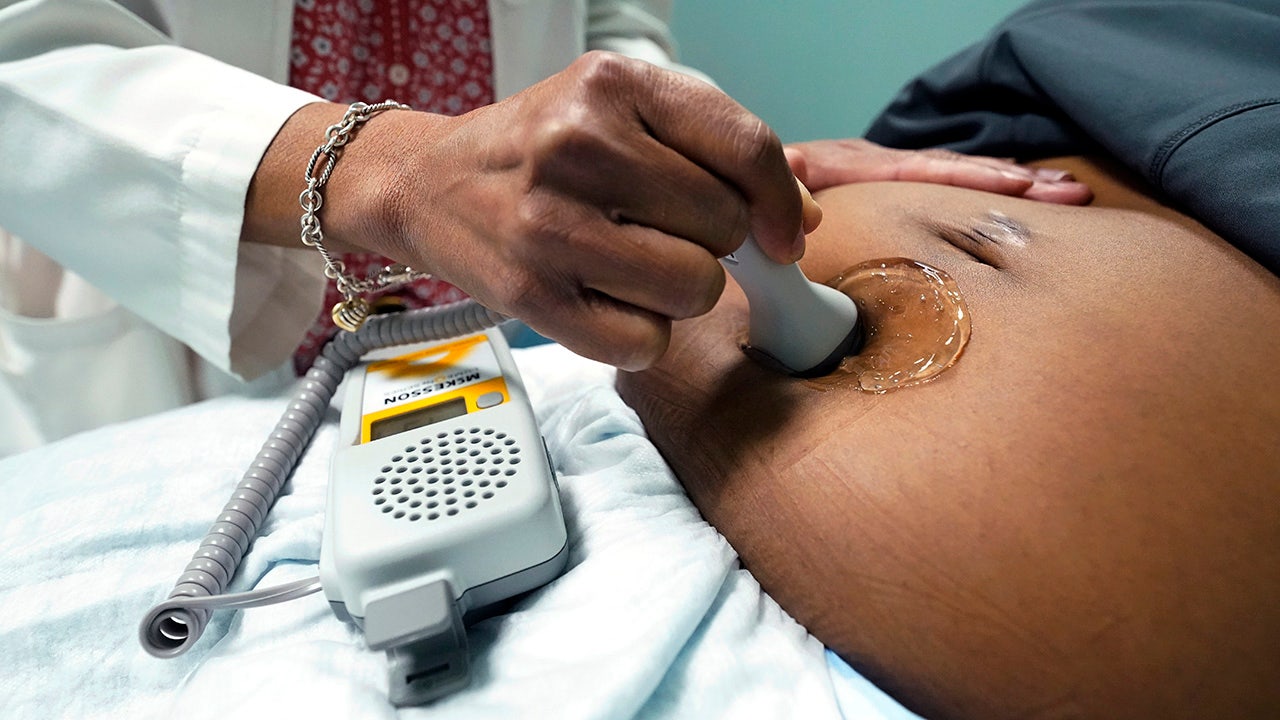Global Courant
The U.S. birth rate remained stable in 2022 without returning to pre-pandemic levels as women are having babies at an older age, a new report from the Centers for Disease Control and Prevention (CDC) revealed Thursday.
Record low birth rates were seen among mothers in their teens and early 20s, with birth rates among women age 40 and older continuing to rise, according to the new CDC analysis of more than 99% of birth certificates issued last year.
Births to mothers age 35 and older also continued to rise last year, with the highest rates in that age group since the 1960s, the CDC found.
Just under 3.7 million babies were born in the US last year, about 3,000 fewer than the year before. Because the numbers are preliminary and the change was small, officials view the births as “kind of at levels from the previous year,” said the CDC’s Brady Hamilton, the report’s lead author.
SOUTH CAROLINA GOVERNOR SIGNS FETAL HEART RATE BILL LIMITING MOST Abortions AFTER 6 WEEKS OF PREGNANCY
A new analysis from the US Center for Disease Control and Prevention found that the US birth rate remained stable in 2022 without returning to pre-pandemic numbers. (Photo by Nathan Posner/Anadolu Agency via Getty Images)
U.S. births fell for more than a decade before COVID-19 hit, then dropped as much as 4% from 2019 to 2020. They rose by about 1% in 2021, an increase that experts attributed to pregnancies that couples had tried to delay in the early days of the pandemic.
The CDC analysis released Thursday found that the highest birth rates are still seen in women in their early 30s. The number of births for women of that age was essentially unchanged from the previous year. Birth rates fell slightly for women in their late 20s, who have the second highest birth rate.
Births to Hispanic mothers rose 6% last year, surpassing 25% of the US total, according to the report.
Births to white mothers fell 3%, but still accounted for 50% of births. Births to black mothers fell by 1% and were 14% of the total.
The US was once one of the few developed countries with a fertility rate that ensured each generation had enough children to replace itself – about 2.1 children per woman. However, it is on the decline, falling to about 1.6 in 2020, the lowest rate on record. It rose slightly in 2021 to almost 1.7 and remained there last year.
NORTH CAROLINA REPUBLICANS ENFORCEMENT ABORTION LAW DESPITE DEMOCRATIC GOVERNOR’S VETO
US births were flat in 2022 as fewer babies are still being born in the country than before the pandemic. (AP Photo/Rogelio V. Solis, File)
“Immigrants have long supported our population numbers,” Karen Guzzo, director of the Carolina Population Center at the University of North Carolina, Chapel Hill, told NBC.
“This is not a story about women being too career-oriented. This is a story about what happens when young people try to make a transition in society and whether or not they have the resources to raise a new generation of people. build,” she added.
The CDC found that birth rates among women ages 35 to 39 will increase by 2% in 2022.
Since 1985, nearly continuous increases in birth rates have been observed for women ages 40 to 44, NBC News reported. Last year, the birth rate for that age group increased by 4%. In 2022, the birth rate for women aged 45 and older will increase by 12%, but the overall number of babies born to mothers in that age group is low.
“Most importantly, the age structure of the US population is changing. The age structure is very different now compared to a decade or two decades ago. The number of women who are of childbearing age is shrinking,” said Feinian Chen, a professor of sociology at Johns Hopkins University, also told NBC.
Pro-abortion protesters and lawmakers hold a pre-debate press conference on a bill that would limit abortions after six weeks at the South Carolina State House in Columbia, South Carolina, on May 16, 2023. (LOGAN CYRUS/AFP via Getty Image)
The rate of births to teens is nearly 80% lower than in the early 1990s, something experts attribute to contraception and more comprehensive sex education in schools. The number of babies born to teen mothers – who mostly come from unplanned pregnancies – has been steadily declining since 2007 at about 8% per year.
Last year, the teen birth rate in the US fell 3% – a smaller drop than in 2021.
More complete and detailed figures for 2022 are expected later this year. That data should provide a better understanding of what happened in individual states and between different racial and ethnic groups, Hamilton said.
Global Courant
It could also show whether births were affected by the U.S. Supreme Court decision last June overturning Roe v. Wade, which allowed states to ban or restrict abortion.
If such restrictions affect births, it was not reflected in the national data released Thursday, according to The Associated Press.
The Associated Press contributed to this report.
Danielle Wallace is a reporter for Fox News Digital covering politics, crime, police and more. Story tips can be sent to danielle.wallace@fox.com and on Twitter: @danimwallace.




